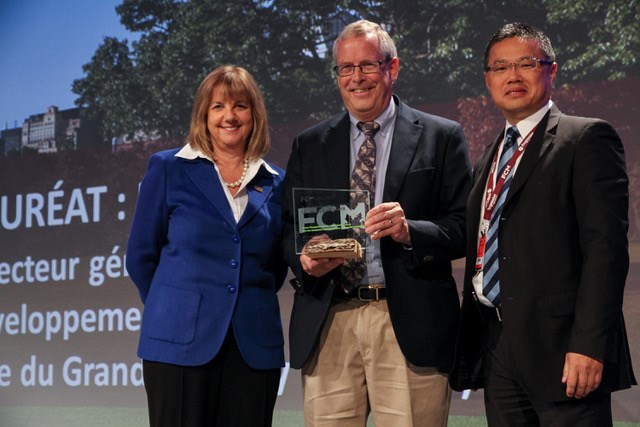Bill Lautenbach is a retired planner with the Regional Municipality of Sudbury who played a key role in the city’s regreening project.
Born and raised in Michigan, Bill arrived in Sudbury in 1975 with a degree in Planning from Colorado State University. The Region of Sudbury hired several American planners that year because the stigma associated with the city’s devastated landscape made it difficult to attract Canadians.
Bill, together with other planners in the department, included a section on landscape remediation in the Region’s official plan, establishing goals and objectives for Regional Council to act on.
There were several efforts at revegetation by the city’s two mining companies and professors at Laurentian University in the early 70s, but it was only in 1977-78 that the regreening project was able to scale up. In 1977, when Inco announced the layoff of 3,500 employees, the municipality established two task forces – one to focus on long term economic development and a second one to focus on short-term job creation. Bill proposed a regreening project that would be able to provide summer employment for students and tapped a federal government job creation program for the necessary funds. The program limited applicants to a total of $25,000, so Bill broke down the project into seven distinct components and submitted an application for each one, dramatically increasing the federal government contribution and allowing for the employment of 174 students. Additional funds were raised from the municipality and the provincial government to cover the cost of lime, fertilizer and grass seeds.
The regreening project that first summer successfully treated 115 hectares of some of the most barren hillsides in the city. Since then, the regreening project has continued every year, resulting in the remediation of approximately half of the barren land in the region. Trees planted in 1982, for example, are now 40 feet high.
In this interview, Bill advises Northern Ontarians to be as creative as possible about securing funds for major environmental projects, identifying sources as diverse as pipeline companies looking to offset carbon emissions and Ontario Hydro, which offers grants for planting trees along power lines.
Aside from funding, Bill points out the importance of technical expertise, logistics, management and planning as requirements for the success of the regreening project which has continued uninterrupted for 44 years and has dramatically transformed the city, making it much easier to attract talent and grow the economy.
